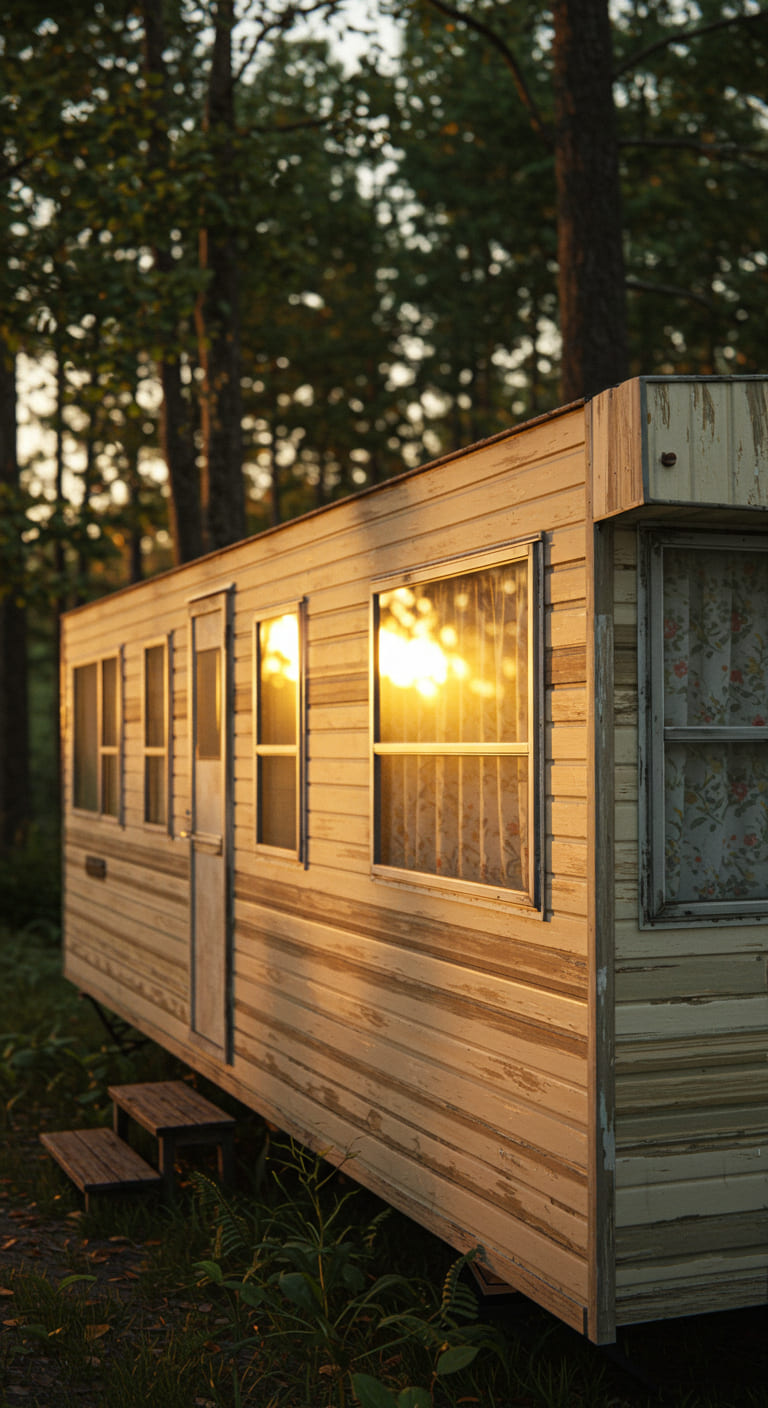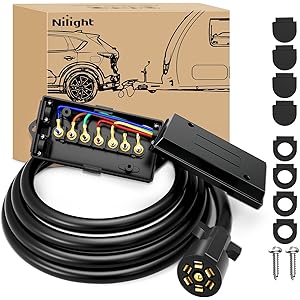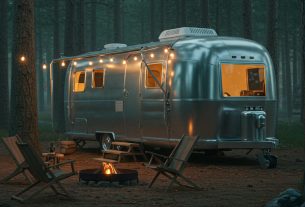As a resident of a mobile home, I’ve experienced my share of storms, but nothing prepared me for the sheer power of a hurricane. The first time the weather channel warned us about a significant hurricane, I was filled with a mix of anxiety and determination. I knew I had to protect my home and my loved ones, but where to start? In this article, I will share essential tips based on my experiences, research, and expert advice that will help you navigate the treacherous waters of preparing for a hurricane while living in a mobile home.
Understanding the Risks of Mobile Homes During Hurricanes
Mobile homes are often more vulnerable than traditional homes during severe weather events. According to the National Oceanic and Atmospheric Administration (NOAA), the average wind speeds during a hurricane can reach up to 150 mph or more, which can easily damage or even destroy a mobile home. Understanding these risks is crucial in making informed decisions about preparation and safety.
Why Are Mobile Homes More Vulnerable?
- Structural Design: Mobile homes are typically lighter and built with less robust materials than traditional homes.
- Anchor Systems: While many mobile homes have anchors, they may not be sufficient to withstand hurricane winds.
- Location: Mobile homes are often situated in low-lying areas prone to flooding.
These vulnerabilities underscore the importance of preparing properly for an impending hurricane. It’s not just about hunkering down; it’s about having a comprehensive plan in place.
Preparation: The Key to Safety
Preparation is not just a buzzword; it’s a lifeline. When I first learned about an approaching hurricane, I quickly realized that how I prepared could make all the difference. Here are some essential steps to take before the storm hits:
Create an Emergency Plan
Your safety should always come first. Discuss with your family what to do in case of an evacuation. Here’s a basic outline of what your emergency plan should include:
- Evacuation routes: Know the best routes to take and where you can go.
- Local shelters: Research nearby shelters that accept pets and check if they have space.
- Communication: Make sure everyone knows how to reach each other in case of separation.
- Emergency contacts: Have a list of important contacts, including family, friends, and your local emergency services.
Secure Your Mobile Home
Securing your mobile home is crucial. Here are some tips that helped me fortify my home:
- Anchor your home: Ensure that your mobile home is properly anchored to withstand high winds.
- Install storm shutters: Protect your windows and doors with storm shutters to prevent breakage.
- Reinforce doors: Use deadbolts and additional locks to secure all doors.
- Remove outdoor items: Take down or secure any loose items like patio furniture, decorations, or grills.
Stock Up on Supplies
When a hurricane is looming, grocery stores can become chaos. I learned to stock up on essential supplies well in advance. Here’s a comprehensive list of items to gather:
- Water: At least one gallon per person per day for at least three days.
- Non-perishable food: Canned goods, granola bars, and dried fruits are good options.
- First-aid kit: Include basic supplies such as band-aids, antiseptics, and any necessary medications.
- Flashlights and batteries: Power outages are common; be prepared.
- Portable chargers: Keep your devices powered to stay informed.
During the Hurricane: Stay Safe and Informed
When the storm finally arrives, it can be terrifying. Here are some tips that kept me grounded and safe during the hurricane:
Stay Informed
Knowledge is power during a hurricane. Use multiple sources to stay updated:
- Weather apps: Download reliable weather apps on your phone.
- Local news: Keep a battery-powered radio handy to listen to local news updates.
- Social media: Follow local authorities on social media for real-time updates.
Seek Shelter
If conditions worsen, know where to go. I found that identifying a safe area within my home was essential. Here are some tips:
- Choose a safe room: Ideally, this should be a small, windowless room on the lowest level of your home.
- Stay away from windows: Flying debris can be deadly.
- Have your emergency kit ready: Keep it in your safe room for quick access.
After the Hurricane: Assess and Recover
Once the storm has passed, the work isn’t over. Assessing damage and recovering can take time. Here’s what I found helpful:
Assessing Damage
Before stepping outside, ensure it’s safe. Here’s how to assess any damage to your mobile home:
- Look for structural damage: Inspect the exterior for any signs of damage.
- Check for leaks: Look for any water damage inside your home.
- Report damages: Contact your insurance company as soon as possible for assistance.
Recovering from the Aftermath
Recovery can be a long process, but you’re not alone. Here are some tips based on my experience:
- Connect with local resources: Many communities offer support and resources after a disaster.
- Document everything: Take pictures of damages for insurance claims.
- Stay patient: Recovery takes time; focus on small steps to get back to normal.
Sharing Experiences: The Importance of Community
Sharing your experiences can be invaluable, both for yourself and for others. I found that connecting with fellow mobile home residents who have faced similar challenges helped me feel less isolated. Here’s how you can share your experiences:
- Social media groups: Join local community groups to share tips and experiences.
- Local events: Participate in community meetings to discuss safety best practices.
- Blogging: Consider sharing your story online to help others in similar situations.
Conclusion: Your Safety is Paramount
Living in a mobile home during a hurricane presents unique challenges, but with the right preparation and community support, you can weather the storm. Remember, it’s all about being proactive. By creating an emergency plan, securing your home, and staying informed, you can significantly increase your chances of safety. I encourage you to share your experiences and tips with others to foster a supportive community. Together, we can navigate the challenges of hurricane season, ensuring our homes and loved ones remain safe.
FAQ
What should I do if I can’t evacuate my mobile home?
If evacuation isn’t possible, secure your home as best as you can and seek shelter in a small, windowless room. Stay informed about the storm’s progress and make sure your emergency kit is accessible.
How can I find local shelters that accept mobile homes?
Contact your local emergency management office or visit their website. They often provide resources and information about shelters in your area.
What are the best materials to reinforce my mobile home?
Consider using storm shutters, plywood for windows, and additional anchoring systems. Consult with local experts for the best materials suited for your area.
If you found this article helpful, please consider signing up for our newsletter for more tips and insights. Share this information with friends and family on social media to help others prepare for hurricane season!
Nilight Heavy Duty 7 Way Inline Trailer Plug 8 Feet Connector Cable 7Pin RV Round Extension Wiring Harness Weatherproof Junction Box for RV Towing Car
$35.99 (as of October 8, 2025 06:39 GMT -03:00 - More infoProduct prices and availability are accurate as of the date/time indicated and are subject to change. Any price and availability information displayed on [relevant Amazon Site(s), as applicable] at the time of purchase will apply to the purchase of this product.)
Sign up for our newsletter and stay up to date with exclusive news
that can transform your routine!





